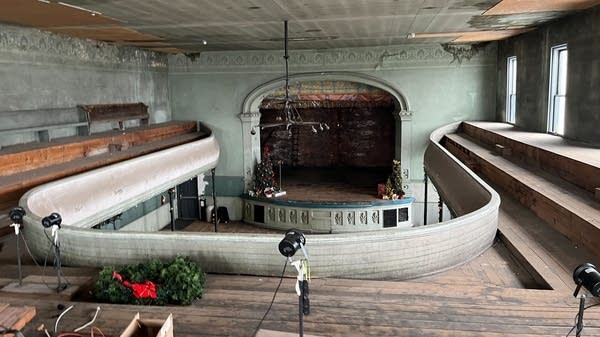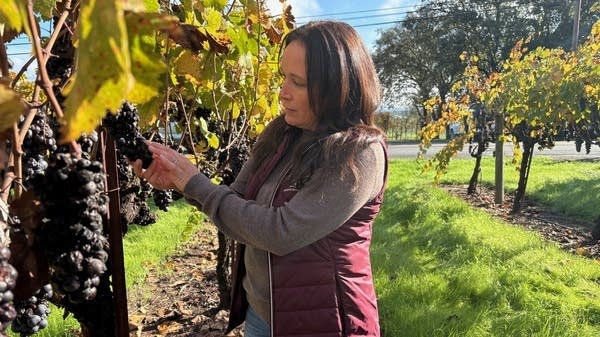Your new nightlife spot might be a Yemeni cafe
Yemeni cafes have skyrocketed in popularity. But their broader appeal lies beyond the coffee.

You might be surprised walking down Hollywood Boulevard to find a cafe chock-full of patrons at 11 p.m. on a Friday night. But this was business as usual for Sadeq Alaqel, who founded Sana’a Cafe alongside his brother. It’s the first of the modern Yemeni cafes to open in the heart of Los Angeles.
Though the Hollywood location had only just opened earlier in March, it’s one of many locations they’ve opened across California – San Rafael, Lake Forest and Sacramento – since the opening of their first cafe in San Francisco in May 2023.
“We just gave it a try. We didn’t think it would be that big of a spike, to be honest with you,” said Alaqel. With nine new locations in the works, Alaqel says they have plans to open their next LA cafe in Westwood.

Other Yemeni cafes patrons mentioned visiting were largely in Orange County, particularly Qamaria Coffee in Lake Forest; a nearly 50-minute drive from the city. Many of the Angelenos in the cafe said they wanted more Yemeni cafes like Sana’a Cafe in the city.
Yemeni cafes, serving distinctive Yemeni coffee and tea, have been growing in popularity around the country, particularly in areas with large Arab and Muslim populations like Michigan and Texas. Other popular Yemeni cafe franchises are Qamaria Coffee and Qahwah House, the latter of which has opened 22 locations since its initial founding in 2017.
A big part of the appeal of these cafes is that they can act as a meeting place for people who don't drink alcohol, explained Hani Bawardi, associate director of Arab American studies at the University of Michigan. Like bars, they tend to be open late into the night.
These cafes have long-standing popularity with Muslims and the Arab diaspora, who may feel a cultural connection to these spaces. But certain aspects of Yemeni cafes – like their tendency to stay open until late, for one – could make for even broader appeal across the U.S.
According to a survey released by the University of Michigan earlier in April, consumer sentiment plunged for the fourth month in a row as a result of Trump’s oscillating tariff policies. As American consumers feel uncertain about the economy and look to cut spending, alternative nightlife spots like Yemeni cafes offer a cheaper alternative to bars.
Though their coffee is high end, with a latte typically going for over $8, the barrier to entry may feel less than what it would be in a bar, where a cocktail in a city like LA or New York can easily go for around $20.
The appeal, however, goes beyond price. Gen Z, according to a recent Gallup analysis, have become progressively less likely to drink alcohol than their predecessors. For a more sober generation, a late night cafe might offer a neutral space for friends to meet.
Dalila Zelkanovic, a patron at Sana’a Cafe who works in strategy, shared that while she does drink, it’s been nice having spots like this open as a casual nightlife alternative.
“I'll occasionally drop into a pub,” said Zelkanovic. “But it's like a big energy expenditure and it's just nice to have other places to actually go and connect with friends.”
Having access to a place where you can connect with others is more important than you might think. Richard Kyte, an ethics professor at Viterbo University who wrote a book titled Finding Your Third Place, told Marketplace that our society is less interdependent than ever. He says this is because people can seek social interaction online.
“Digital devices have offered us both opportunities for entertainment [and] other ways of getting together with people,” said Kyte.
But young people report feeling lonelier than ever before. A national survey conducted in 2024 found that 24% of 18-to-29-year-olds stated they had “serious feelings of loneliness.” This trend among adults has been deemed a public health crisis – loneliness can pose real health problems like increased risk of heart disease, stroke and dementia.
Kyte says third places, like a cafe, can help address the issue of loneliness.
“If we create purposeful interdependence – make a commitment to show up at a place on a regular basis – you depend on others being there. It provides a great deal of richness to one's life,” said Kyte.
These cafes do appear to be generally social in nature, especially at night. At Sana’a Cafe, there were over 50 patrons in the space at 10 p.m. – while a few people read a book or had a laptop open, the rest were there chatting with friends and family.
28-year-old analyst Sandra Ghazal, who’d just run into a college friend while visiting Sana’a Cafe, highlighted the social appeal of Yemeni cafes.
“Everyone's kind of like in their own world, right?” said Ghazal. “But then here, you socialize, you see people you know.”







!["I think [AI] is really cool. There is stuff out there that is fun to watch," said Bella Falco of Denver, Colorado. "There are also things that starting to really scare me, like fake creators."](https://img.apmcdn.org/cb0a9a7e54db934026285b941f4b74ded3dab5ea/widescreen/53f6b2-20251113-bella-falco-sitting-on-a-striped-couch-with-a-mug-600.jpg)





